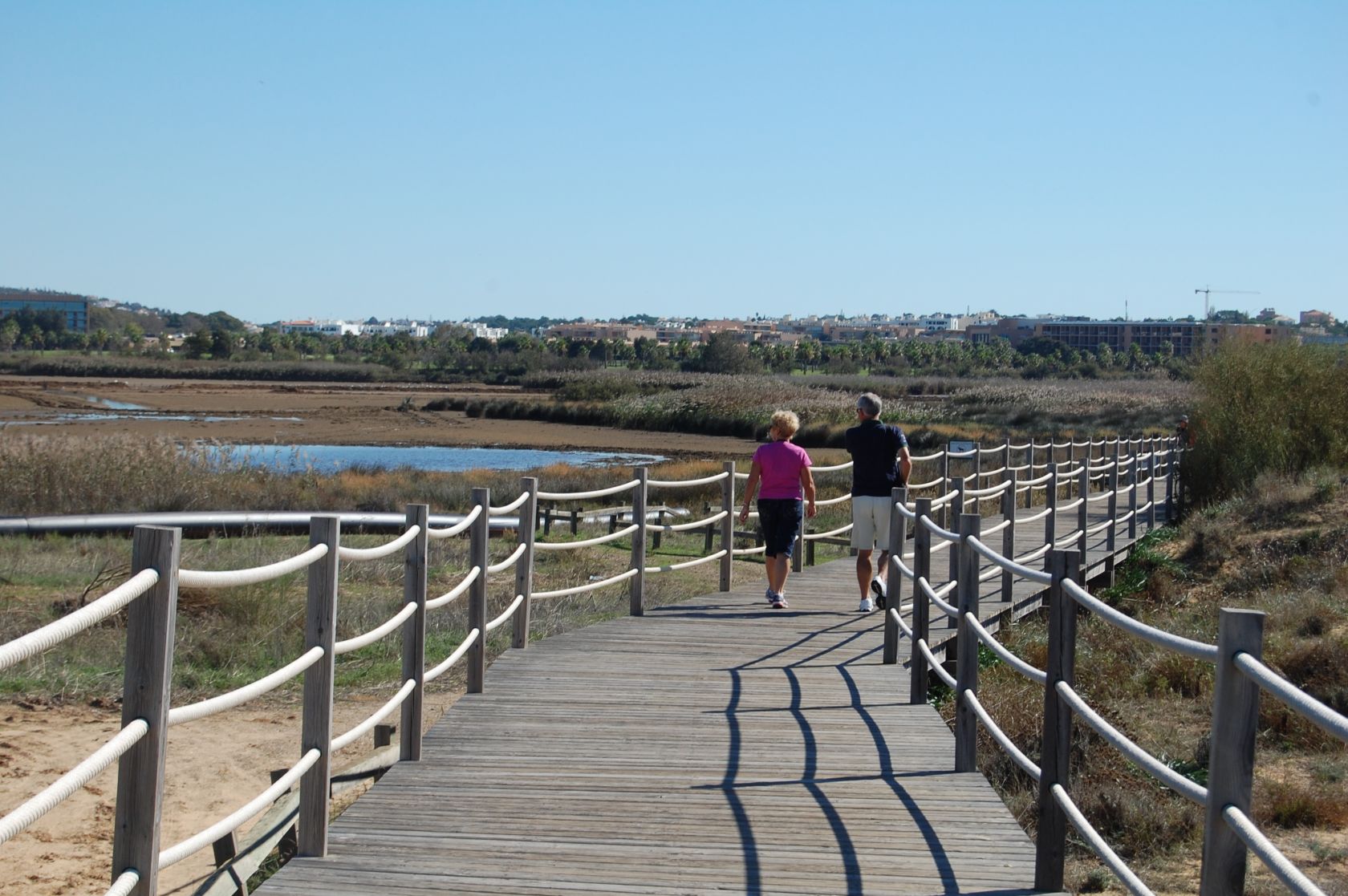The Algarve
has a rich and diverse landscape which includes sandy coastlines, wetlands, mountains, and Mediterranean landscapes, making it a favourable home to many resident
birds as well as many visitors due to it being a major migration route.
Birdwatching
is a wonderful way to spend your leisure time in the Algarve, and as the saying
goes “the early bird gets the worm” it definitely applies with sightings being
best in the morning. Some special species include white stork, crested lark,
flamingos, spoonbill, purple swamphen, Hoopoe, bee-eaters to even owls, falcons, and eagles.
Some
noteworthy locations for birdwatching in the Algarve include the Sapal nature
reserve near Castro Marim and Vila Real de Santo António, the Ria Formosa
Natural Reserve, Lagoa dos Salgados and Cape of St. Vincent, Sagres.
The
Sapal Nature Reserve
Reserva
Natural do Sapal de Castro Marim e de Vila Real de Santo António is the first
nature reserve to be established in Portugal in 1975 and is one of the most
popular birding spots in Europe. These wetlands have a rich variety of habitats
with saltpans and mudflats. It is possible to see birds throughout the year,
such as the White Stork, Spoonbills, Great Flamingo, and the Black Winged Stilt
which is the most common specie there and was chosen as the symbol of the
reserve.

The Ria
Formosa Natural Reserve
Parque
Natural de Ria Formosa is not named one of the seven wonders of Portugal for
nothing and comprises 18,400 hectares. Ria Formosa is the most popular spot for
birdwatching and is considerably larger that the Sapal Nature Reserve. Ria
Formosa’s Reserve is a protected area that has various habitats just to name a
few: saltpans, dunes, and sandbanks meaning it has an active abundance of
birdlife depending on the time of year, with over 300 species having been
spotted here. The Purple Swamphen is the star of the park but it is also home
to many species during migration.
Lands turismo na natureza cites “In autumn and winter bring
Spoonbills, hundreds of Greater Flamingos, Audouin’s Gulls and Slender-billed
Gulls and as many as 20 species of wading birds, including Stone-curlews. In
spring/summer, local breeding species include European Bee-eaters, Red-necked
Nightjar, Little Terns, Avocets, and Kentish Plovers.” There are also Ria Formosa
Boat tours that you can do that allow you to experience birdwatching in a whole
new way.
Lagoa dos Salgados
Lagoa dos
Salgados or also known as ‘Pera Marsh’ is a typical coastal lagoon and despite
being smaller it is where over 200 species having been recorded, especially
waterfowl, with some interesting species including Purple Swamphen and Squacco
Heron making it a wonderful birding hotspot in the Algarve.
Cape of
St. Vincent
According
to Walk Algarve
“A varied assortment of raptor, soaring, passerine and marine birds take centre
stage between late August and mid-November. Among birds of prey, the most
frequent migrants are Booted Eagle, Sparrowhawk, Short-toed Snake-eagle, Common
and Honey Buzzards, Kestrel, and the rather impressive Griffon Vulture. However,
the peninsula is also deservedly famous as a hotspot for threatened, vagrant,
or rare species such as the Iberian Imperial Eagle (see also Cabranosa Birding
Hotspot).”
“Cape St. Vincent also offers excellent opportunities to observe a variety of seabirds. Depending on the season, Balearic and Cory’s Shearwaters, Northern Gannets, Scoters, Great and Pomarine Skuas, Parasitic Skuas, Razorbills, and even (luck permitting) Grey Phalaropes can be relatively easy to identify from Cape St. Vincent.”

Additionally,
Sagres hosts the largest birdwatching event in Portugal, which usually takes
place at the start of October. The Birdwatching Festival’s diverse program makes it a very popular event, which includes lots
of free-of-charge events, which include lectures, workshops, guided tours,
observation walks, and educational talks.
Visit Algarve has a ‘birdwatching guide to the Algarve’ on
their website, which was published by the Algarve Tourism Board, which has a
plethora of information and 32 excursions which I feel is the best place to
start if you are a beginner in the field or if you need any specific
information. Additional information can be found on birdwatching tour companies'
sites which include Walk Algarve, Algarve Birdman, and Algarve Birdwatching which offer expert tours.















